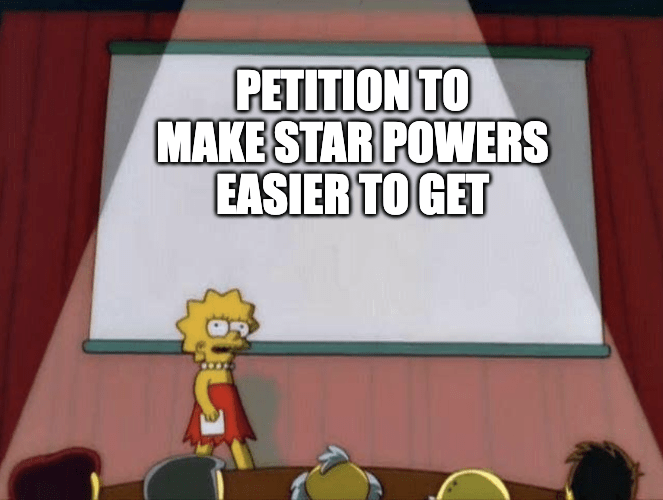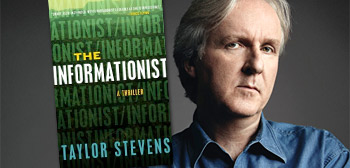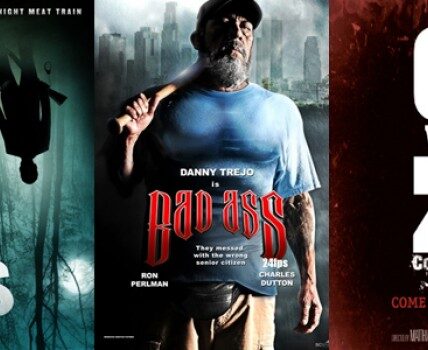Creative Screenwriting magazine Senior Editor, Danny Munso, debates the reasons for and against writing your script with a particular movie star in mind.
This column has covered varying topics that will aid you in either writing or selling your script, and one of the most common questions that novice screenwriters ponder is: ‘Should I write my script with specific actors or actresses in mind?’ This is screenwriting so the answer, predictably, is complicated.
It is undoubtedly a timely question to answer, because of the current stale state of the spec market. Although there have been recent signs of life, it’s hard to say whether the market will be truly revived in a few months, or return to its long-held state of dormancy.
Because of this, the issue of ‘packaging’ has become vital to a spec’s success, particularly for new writers. So, we’ll start there in examining both the cases for and against tailoring your script to a certain actor or actress.
The Case For…
For any of those left wondering, ‘packaging’ is the process of a script getting sold because of the talent that is attached to it. When your reps are taking your spec out to studios, the executives will want to know who else is going to be a part of the project—especially if you are a new and unproven screenwriter.
Oftentimes the names attached to a project that get it sold can be producers and directors. But no name is more attractive to a buyer than an actor or actress. Star power matters, especially in Hollywood, and if a ‘name’ deems your screenplay worthy of their involvement, sometimes that’s all companies need to hear in order for them to throw their hat in the ring and go after your script.
And with the spec market in a state of flux that may or may not see a positive resolution, packaging your script with an actor can be the mythical Golden Ticket that makes you a produced screenwriter—or at the very least, a paid one. It’s hard to argue someone out of the risk reward of trying to nab an actor this way. If it works, the move is seen as brilliant. You are now a working screenwriter whose film is on the fast track because you have a great actor attached.
Of course, the case for writing with certain performers in mind does not have to be limited to a strictly business frame of mind. There is the logistical advantage, one that many screenwriters I know use to their advantage. It is entirely possible that you will write a better character—and a better script—if you picture the film in your head acted out by certain people.
This is a noble approach, as you are thinking as an artist first, and not a businessperson. Visualisation is of the utmost importance in screenwriting. It is your job to communicate from your page exactly what should be seen on screen. If the best way for you to get there is to envision certain actors and/or actresses in key roles, I am not here to argue you out of that.
But if you go that route, take caution that you don’t cross the line and script a part that only one person can play. There are risks involved.
The Case Against…
Perhaps the best way to make the ‘against’ argument is to simply do a roll-call of some of the best marriages of actor and script and see how they came about. The Godfather is a part of anyone’s shortlist for Greatest Movie Ever and the part of Vito Corleone was certainly written for Marlon Brando to portray, which he did to wide acclaim. But the heart of the film—not to mention its powerful sequel—was with his character’s son, Michael. This part wasn’t written specifically for Al Pacino, but he created one of the great characters from that script.
Nearly everyone knows that Tom Selleck was offered the part of Indiana Jones before it ultimately fell to Harrison Ford in Raiders of the Lost Ark. That was a decision that was about business (Selleck couldn’t get out of his Magnum P.I. television contract), not the script.
Furthermore, Back to the Future co-writer/director Robert Zemeckis actually shot a week of footage with Eric Stoltz as Marty McFly before replacing him with Michael J. Fox. Can you imagine anyone else in these roles? Of course not. These films landed these actors because the parts were well-written and in demand. They weren’t scripted for any one specific person. The only thing they were was written brilliantly. So, isn’t that what you should focus on?
Perhaps a better example to look at is the comedy genre. On the surface, it would seem this is the ideal type of script where you should target a certain performer. More than any other genre, comedy lends itself to the unique rhythms and talents of its actors. No two comedic stars are created equal.
A lot of writers come up with ideas based on the fact that they see the film could really succeed in the hands of a certain comedic performer, such as Will Ferrell or Zach Galifianakis. This thought process not only has merit, but has served up major success stories. The trick is to not mistake circumstance and luck for an ideal process to selling a script.
Let’s say you have tailored your comedy script to School of Rock and Tropic Thunder star Jack Black (pictured right). Black’s comedy styling is one-of-a-kind; no other actor even really treads on his blend of humour. He would be perfect for your role and it just so happens your script has found its way to his reps. He reads it… and passes. Now you are stuck with a well-written comedy screenplay scripted exclusively for one man, who just happens to not want to be a part of it. What are the chances Ben Stiller reads the part and envisions himself in that role? What about Vince Vaughn? There’s always a chance, but the odds aren’t in your favour.
Then there’s the main reason you should not write your script for a specific movie star: there aren’t that many left. The list is surely debatable, but the box-office receipts suggest that only a handful of performers can open a film strictly on their name alone, and just because you were on that list at one point, doesn’t mean you are always on there, as Tom Hanks and Julia Roberts have discovered recently.
Legendary screenwriter William Goldman has long claimed that the only true movie star alive is Will Smith. If you are writing a script for Smith and get him attached, then my advice to you would be go out and buy the most expensive type of champagne you can get your hands on. But Smith does one film every three years—recently, at least—and I wouldn’t hold out hope for one shot in the dark.
I disagree with Goldman that the list of stars begins and ends with one name, but the list isn’t too much longer. Why bother writing for a movie star who may not be a movie star by the time it comes to sell your script? You are putting too much confidence in things you have absolutely no control over.
So why cause yourself the headache? To be fair, crisis of confidence is written into the DNA of every screenwriter who ever opened a Final Draft document. But this is where you need to believe in your writing. Don’t use the possibility of a certain actor in your lead role as a crutch. It’s the easy way out. You need to trust that your story and your characters are enough to attract a wide range of actors or actresses. The worst thing a screenwriter can do is pigeonhole themselves, and this is just another way to do that.
The bottom line is that it is much easier to nab a great actor, whether they are your first choice or not, with a brilliant script that isn’t so specific that actors can’t see themselves in the role. Worry about crafting your story and let the other chips fall where they may. ♦ @dannycsmag
















